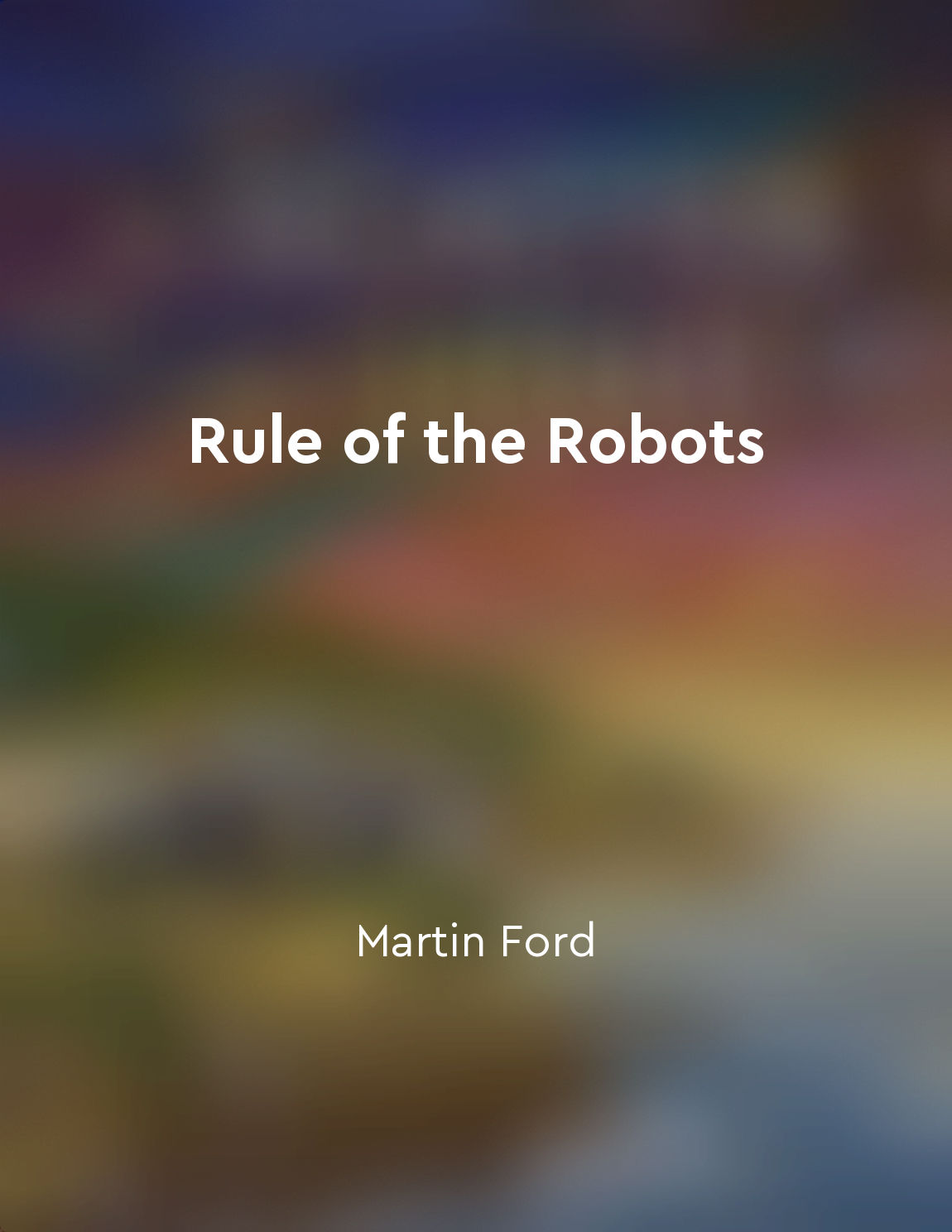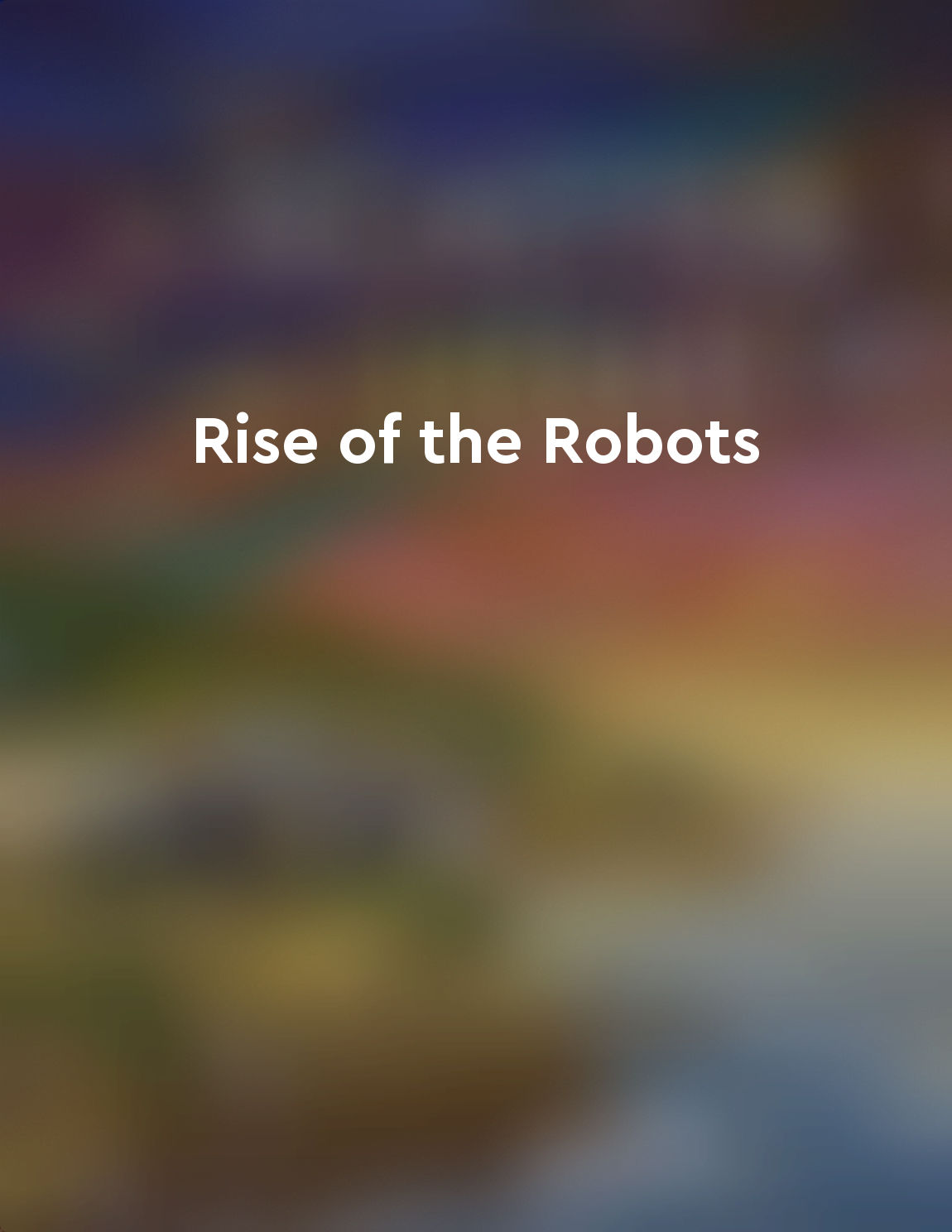Automation is eliminating jobs at an alarming rate from "summary" of Rise of the Robots by
As technology continues to advance at a rapid pace, the impact on the job market is becoming increasingly apparent. Automation, in particular, is playing a significant role in reshaping the workforce as we know it. The traditional notion of humans performing tasks that machines cannot is quickly becoming obsolete. The rise of robots and artificial intelligence has led to a situation where machines are capable of performing a wide range of tasks with greater efficiency and accuracy than their human counterparts. This has resulted in a shift towards automation in various industries, from manufacturing to customer service. One of the key consequences of this trend is the displacement of human workers. As machines become more proficient at carrying out tasks that were once performed by humans, there is a growing concern that jobs are being eliminated at an alarming rate. This is particularly evident in industries that rely heavily on manual labor or repetitive tasks. Furthermore, the impact of automation is not limited to low-skilled or blue-collar workers. Even white-collar jobs are at risk of being automated, as sophisticated algorithms and machine learning systems are increasingly capable of performing tasks that were once thought to require human intelligence. This has created a sense of uncertainty among workers across all sectors, as the threat of job loss looms large. The pace at which automation is progressing raises important questions about the future of work and the role of humans in an increasingly automated world. While some argue that automation will lead to new job opportunities and increased productivity, others are concerned about the potential social and economic implications of a workforce that is increasingly reliant on machines. In the face of these developments, it is clear that we need to carefully consider the impact of automation on the job market and society as a whole. As we navigate this new era of technological advancement, it is essential to think critically about how we can ensure that the benefits of automation are shared equitably and that workers are not left behind in the process.Similar Posts
AI has the potential to address societal challenges
AI has the potential to address some of the most pressing societal challenges we face today. One of the most significant ways i...

By programming, we can reclaim control over our own digital experiences
Programming provides us with the ability to understand and manipulate the digital environment in which we now live. By learning...
AI has the potential to enhance equality and social justice
AI holds the promise of helping to level the playing field when it comes to equality and social justice. One way in which AI ca...

Businesses must invest in workforce development to stay competitive in a digital world
In today's digital world, businesses face intense competition and rapidly evolving technology. To remain competitive, companies...
It's about critical thinking
Critical thinking is the cornerstone of a liberal education. It is not just about memorizing facts or mastering a specific skil...

Businesses must invest in workforce development to stay competitive in a digital world
In today's digital world, businesses face intense competition and rapidly evolving technology. To remain competitive, companies...

The advancement of artificial intelligence is driving the growth of robotics
In the ever-evolving landscape of technology, artificial intelligence stands out as a driving force behind the rapid growth of ...
Traditional skills are becoming obsolete as machines become more sophisticated
As machines continue to advance and become more sophisticated, traditional skills are gradually losing their relevance and valu...

The future of work will be shaped by the integration of robots and AI
The rapid advances in robotics and artificial intelligence are fundamentally transforming the labor market. As technology conti...
